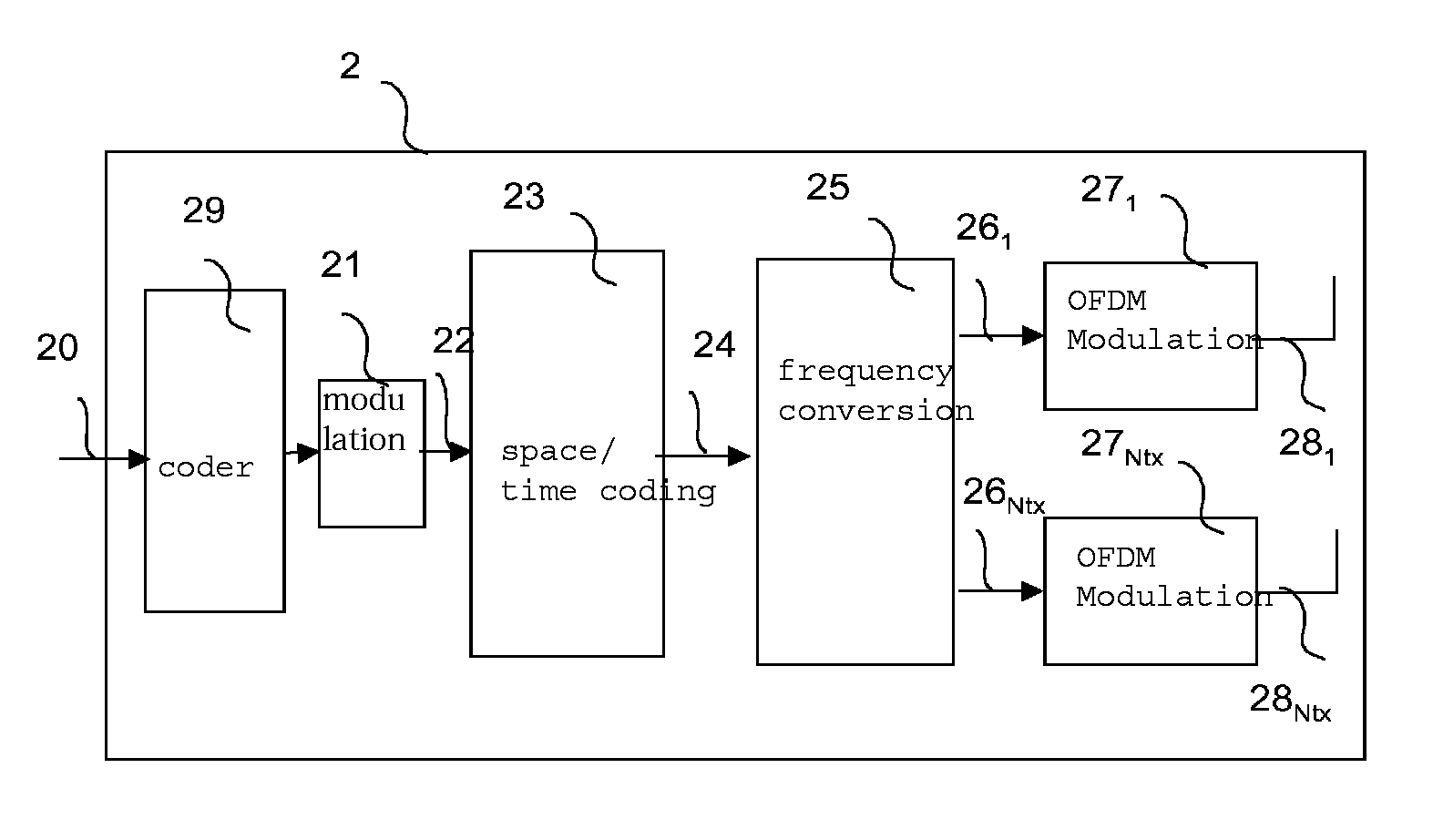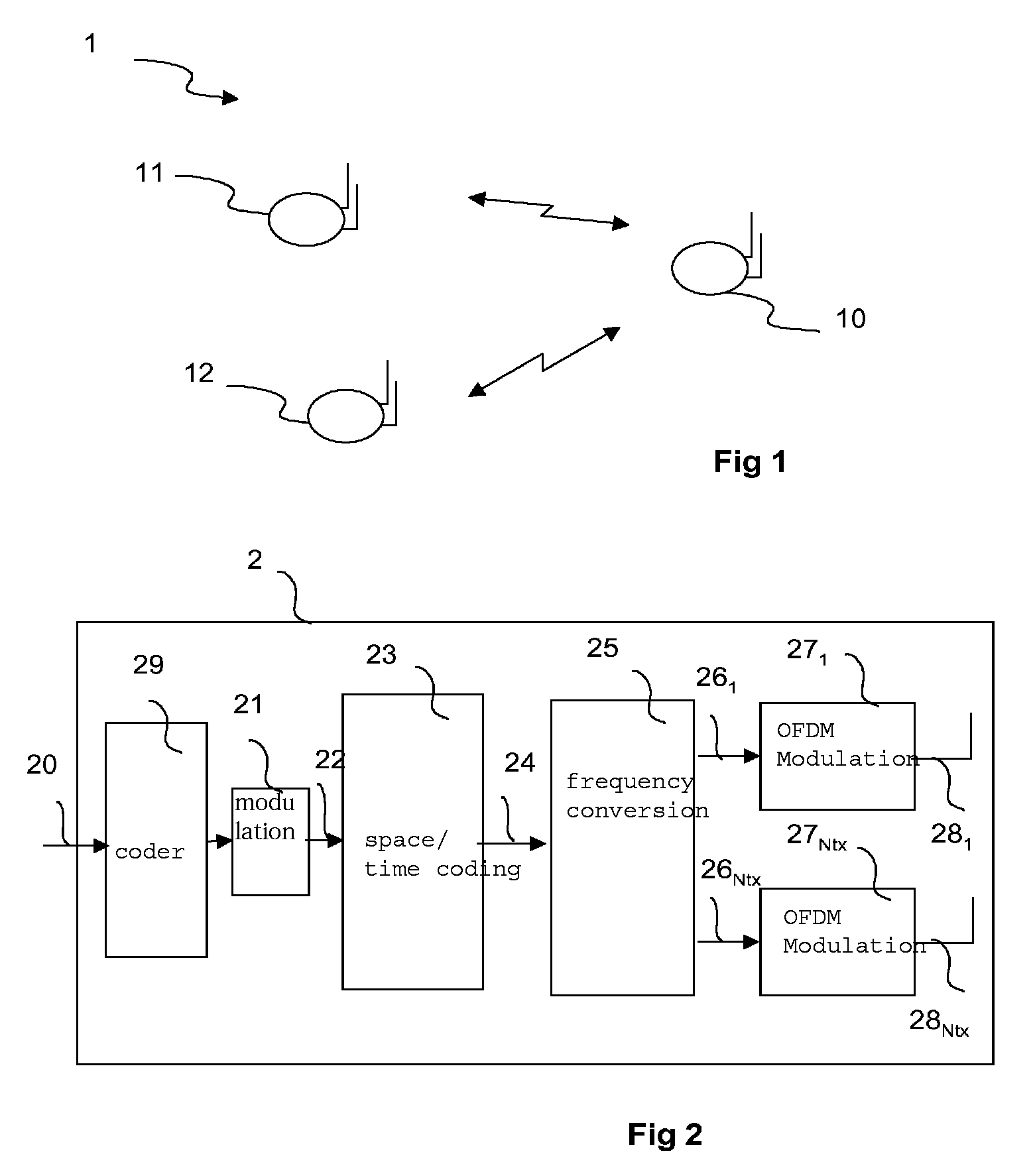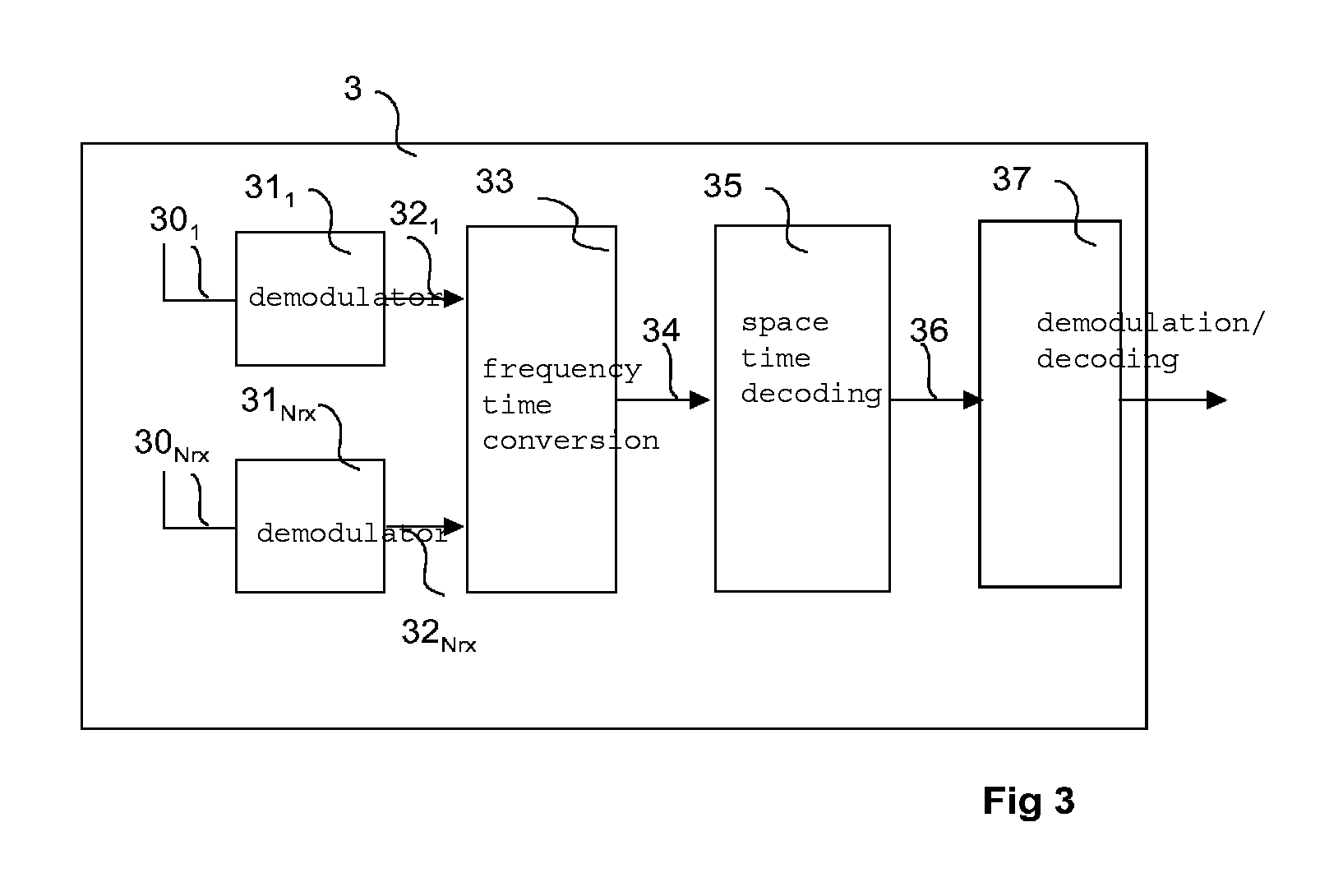Method of decoding a signal implementing a progressive construction of a decoding tree, corresponding computer program and decoding device
a decoding tree and signal technology, applied in the field of digital communication, can solve the problems of inability to implement real-time applications, inability to decode signals, so as to achieve the effect of reducing complexity and further limited decoding complexity
- Summary
- Abstract
- Description
- Claims
- Application Information
AI Technical Summary
Benefits of technology
Problems solved by technology
Method used
Image
Examples
Embodiment Construction
1. General Principle
[0082]The general principle of an embodiment of the invention is based on the modification of a sequential stack decoding technique for reducing the decoding complexity. To do this, during the construction of the decoding tree, the number of sons determined for a current node is reduced, and only the nodes belonging to a predefined selection interval are determined.
[0083]Indeed, it is noted that, for the construction of a decoding tree according to the technique described in the aforementioned documents “A fast sequential decoding algorithm using a stack” or “A unified framework for tree search decoding: rediscovering the sequential decoder”, n branches start from each node of the tree for a constellation 2n QAM. According to an embodiment of the invention, it is proposed to reduce the number of branches starting from each node, by generating only the son nodes belonging to a predefined selection interval.
[0084]To do this, according to a specific embodiment of th...
PUM
 Login to View More
Login to View More Abstract
Description
Claims
Application Information
 Login to View More
Login to View More - R&D
- Intellectual Property
- Life Sciences
- Materials
- Tech Scout
- Unparalleled Data Quality
- Higher Quality Content
- 60% Fewer Hallucinations
Browse by: Latest US Patents, China's latest patents, Technical Efficacy Thesaurus, Application Domain, Technology Topic, Popular Technical Reports.
© 2025 PatSnap. All rights reserved.Legal|Privacy policy|Modern Slavery Act Transparency Statement|Sitemap|About US| Contact US: help@patsnap.com



